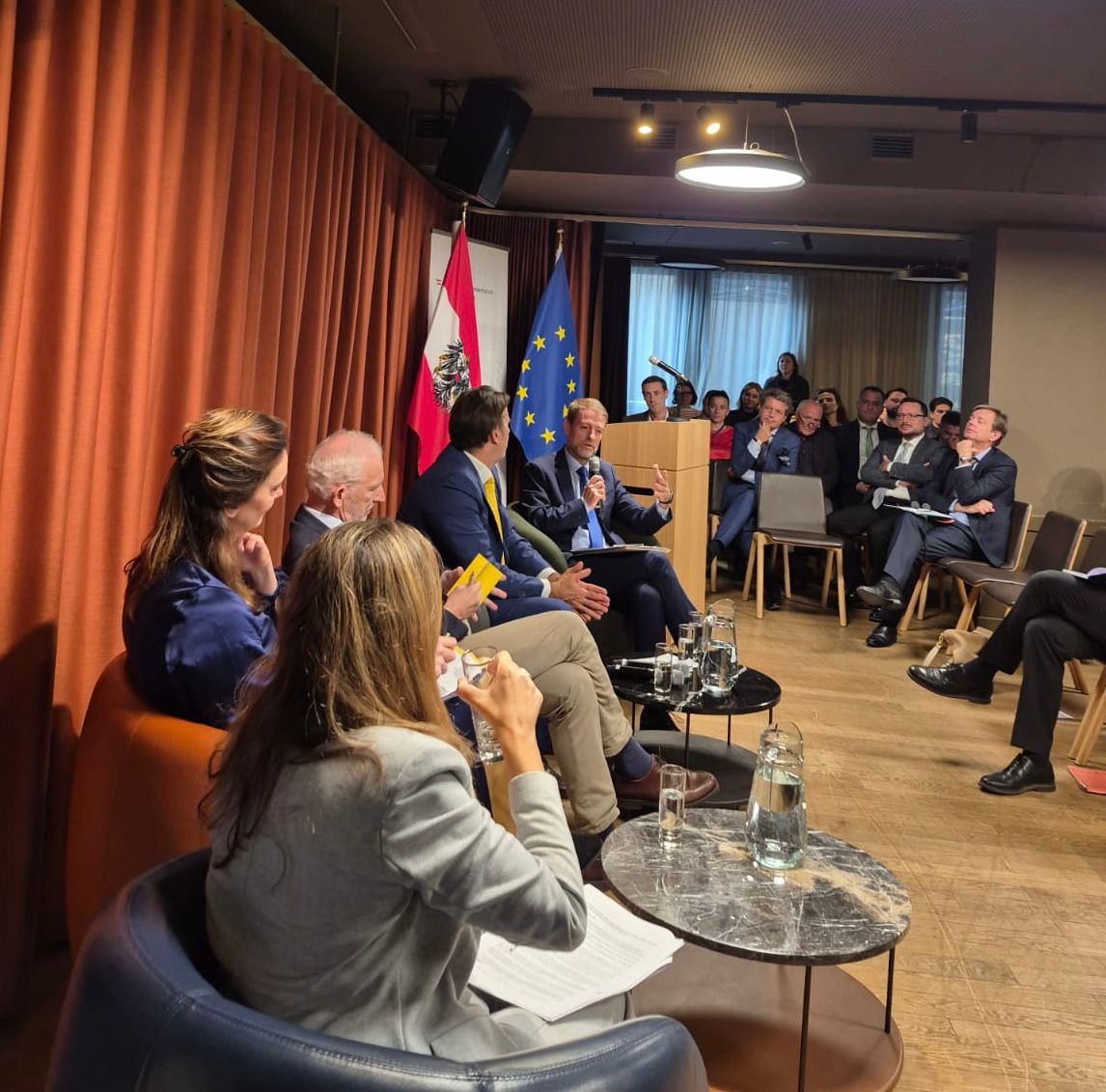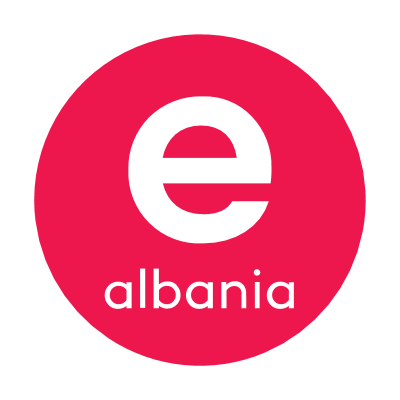ACTIVITIES
***
On September 27, as part of the activities during the European Union Celebration, organized by the Italian community in Luxembourg, Ambassador Hoxha participated in a panel discussion on Enlargement, on the topic “EU Enlargement – a perspective from Albania”, together with MEPs and various pro-enlargement officials and stakeholders. He presented the main stages of Albania’s journey in the negotiation process, the major commitments in this context, and the joint plans for the opening of all chapters within this year.
***
On October 2, invited by Rasmussen Global, Ambassador Hoxha participated in the Geopolitical Breakfast on “Securing the Eastern European Border”. This roundtable discussed the security challenges on the EU’s eastern flank, focusing on the rise of hybrid tactics (drones, etc.) and highlighting the critical role of space-based capabilities, surveillance systems and counter-drones in addressing these threats. Appreciating all the recent NATO and EU initiatives in response to destabilizing hybrid tactics on the EU’s eastern flank, Ambassador Hoxha assessed that the eastern border has never been just a geographical border; it will be a test of Europe’s resilience. As is the case with the Western Balkans, which is increasingly being used as a testing ground for hybrid operations. The objective is clear: to test the influence of NATO and the EU and to delay the region’s full integration into Euro-Atlantic structures.
“If we can withstand hybrid pressures, combining our deterrence and defense capabilities and building our alliances, unity and efficiency, then we will be able to send a clear message: Europe is capable of protecting its borders and its way of life.”
***
On October 1, Ambassador Hoxha participated in a panel discussion, entitled: “From Beneficiary to Contributor: The Western Balkans in the European Security and Defense Equation”, organized by the Permanent Representation of Austria to the EU in cooperation with the EU Institute for Security Studies (EUISS) and Carnegie Europe. During the discussion, Ambassador Hoxha highlighted Albania’s growing role in strengthening security in the Western Balkans, as well as its contribution to regional stability and strategic partnerships with the European Union and NATO. He stressed that as an EU candidate country, Albania is intensifying its participation in joint security initiatives, cyber defence, border management and the fight against organised crime.
“We are also active in the European integration processes, participating in forums and structures aimed at harmonising security and justice policies with EU standards. This approach makes Albania a reliable partner and a key factor for peace and stability in the region. As a small country, we need the international order to be firmly based on the principles of international law, which guarantee peace and stability, and we remain open to making further contributions in this direction,” he said.

***
On October 1, the Mission participated in an expert roundtable, organised by the EUROPEUM Institute for European Policy on the topic “Perspectives for EU enlargement in the Western Balkans: A missed opportunity or a strategic turning point”. It was assessed that as the EU is at a critical stage of redefining its role as a geopolitical actor, against the backdrop of Russia’s continued aggression in Ukraine, a changing transatlantic landscape, the negotiations of the new MFF and growing instability in the EU’s immediate neighbourhood, enlargement has returned to the heart of the European project. The Western Balkans, long considered the “unfinished business” of EU enlargement, now stands at a crucial crossroads: a strategic turning point or another missed opportunity. Albania and Montenegro are now seen as the most viable candidates for membership. However, the success of enlargement will depend on the reform efforts and political will of the candidate countries themselves, but also on the ability and willingness of Member States to act as credible advocates for the integration of the region and ultimately on the support of societies across the EU and the Western Balkans.





